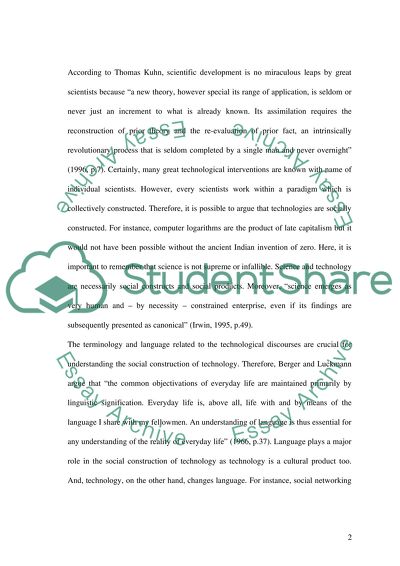Cite this document
(“How can theories of the social construction of technology (SCOT) help Essay”, n.d.)
Retrieved from https://studentshare.org/environmental-studies/1416583-how-can-theories-of-the-social-construction-of
Retrieved from https://studentshare.org/environmental-studies/1416583-how-can-theories-of-the-social-construction-of
(How Can Theories of the Social Construction of Technology (SCOT) Help Essay)
https://studentshare.org/environmental-studies/1416583-how-can-theories-of-the-social-construction-of.
https://studentshare.org/environmental-studies/1416583-how-can-theories-of-the-social-construction-of.
“How Can Theories of the Social Construction of Technology (SCOT) Help Essay”, n.d. https://studentshare.org/environmental-studies/1416583-how-can-theories-of-the-social-construction-of.


